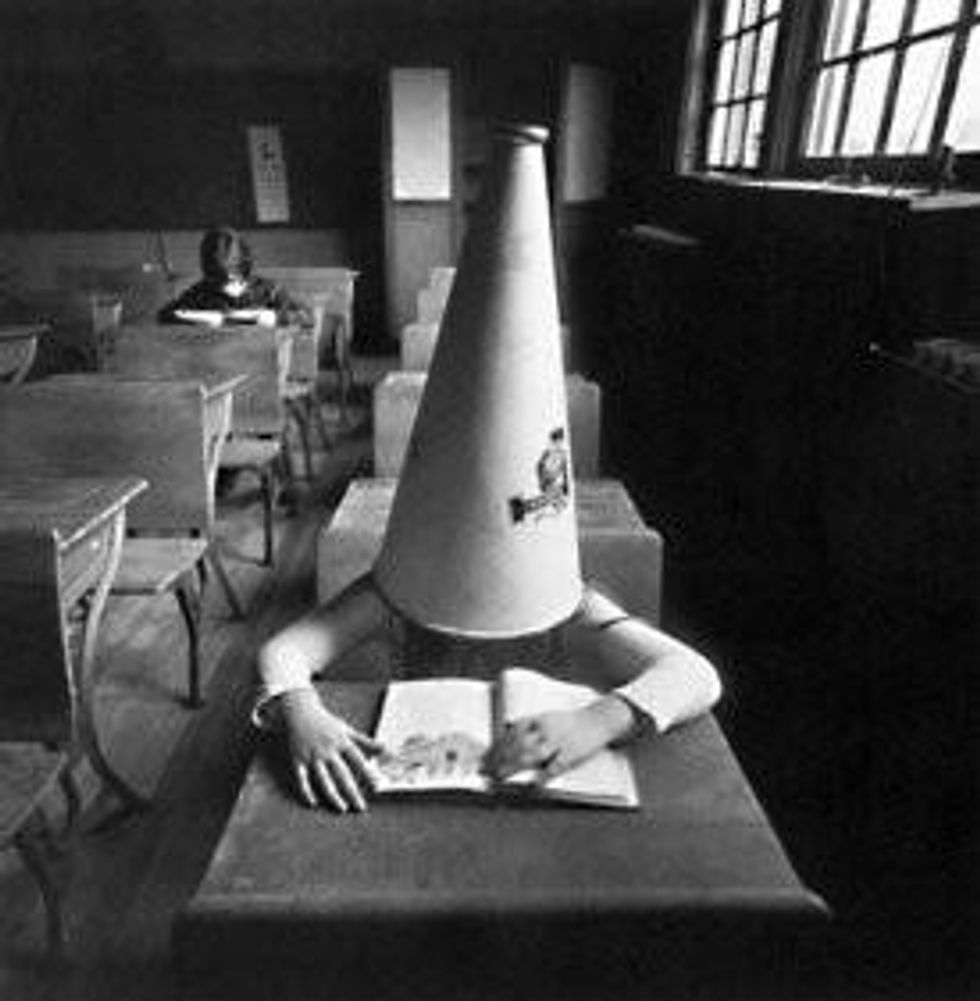This week is National School Choice Week--a well-orchestrated PR event to celebrate "school choice."
The week of nationwide events even kicked off with a party in New Orleans complete with performances by The Temptations and Ellis Marsalis. It's a lot of fanfare in the name of choice. And choice is an attractive word. As American as apple pie, it's hard to pick an argument with choice. Options, we believe, are always good.
But that's not always the case.
When we talk about school choice--which is most often associated with charter schools--we can't let feel-good words and a glitzy campaign prevent us from providing our children with the best education possible. That means we must ensure our public education system is excellent, equitable and accessible to all children.
Unfortunately, these goals have become obscured by "school choice," which has become an end in itself--even garnering its own week.
School choice doesn't magically improve education. Charter school proponents may argue that a free market, where parents get to pick and choose among educational options, will produce competition and better schools, but the data say otherwise.
Educational historian Diane Ravitch has found that study after study show that charter schools do no better than traditional public schools when it comes to learning gains. The findings are documented to devastating effect in her book, "The Death and Life of the Great American School System."
Pointing to one major 2009 study of more than half the country's charter schools representing 70 percent of charter-school students, Ravitch reports that "37 percent had learning gains that were significantly below those of local public schools; 46 percent had gains that were no different; and only 17 percent showed growth that was significantly better."
The bottom line: 83 percent of charter schools are no better than traditional public schools.
That may not sound so bad but tax money--and lots of it--goes to charter schools. They also receive a little lagniappe from foundations. It means these schools usually spend much more per student than traditional public schools. In what economic system does competition mean spending more and getting the same or worse quality?
What's worse is the impact on the students least likely to be found in schools of choice: students with disabilities, students with unmotivated parents, students living in deep poverty or students simply unable to transport themselves across town to attend a better school. These students are the ones most likely to find themselves shut out of these schools and mired in a deepening cycle of failure.
Ravitch found that charter schools, particularly those in urban districts, enroll the most motivated students, students with parents pushing them to excel. "Regular public schools in the same communities get the students who did not win the lottery, plus all the less motivated students," she writes. And when you put these students together in a school, the peer pressure will "likely depress the academic performance of the motivated students" who didn't win the lottery.
This is unacceptable. We should not settle for it. And we certainly shouldn't celebrate it.
We benefit from public schools that provide all children with an opportunity to learn and flourish. Education is not a product or choice that only affects the child receiving it. It affects all of us.
Educational inequality also has a huge impact on our ability to compete globally. Many American students - those who are white or Asian and those who attend affluent schools - perform as well or better than those living elsewhere in the world, according to education expert Linda Darling-Hammond.
But the performance of children of color, and of children living in poverty, is so much lower that it drags our national averages to the bottom of any comparative list, she writes in "The Flat World and Education: How America's Commitment to Equity Will Determine Our Future."
As a nation, we rely on well-educated workers. We rely on the well-engineered products they create. And we rely on the dependable services they provide. A quality education for all children is key to achieving these goals. Quite simply, all of us benefit when Johnny reads well.
If choice is good, we must ensure that every child--including the most disadvantaged and vulnerable--has access to equal choices. We must ensure every child has access to the full range of opportunities that "choice" is meant to provide. And we must ensure every child has an opportunity to receive a quality education--a concept truly worth celebrating.




